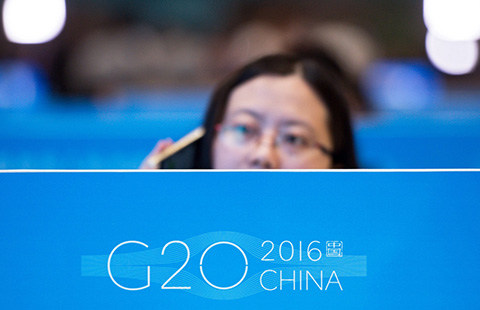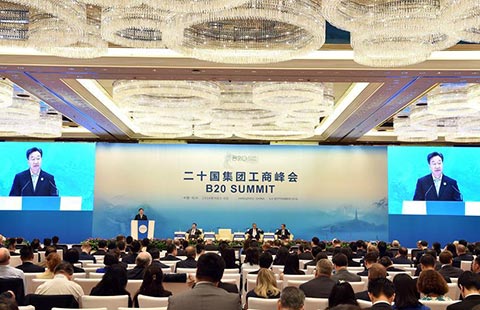'It's time' for open global investment environment
By Zhong Nan (China Daily) Updated: 2016-09-06 07:37Government leaders' vision of building an open and transparent global investment environment and curbing trade protectionism will offer growth remedies to the world economy in the long run, especially to developing economies, officials and experts said on Monday.
"It's time for the G20 to move forward with an effective agenda on investment and trade. Developing countries otherwise may continue to confront challenges caused by lack of foreign investment, and higher tariffs to ship goods to certain countries," said James Zhan, senior director of investment and enterprise for the United Nations Conference on Trade and Development.
President Xi Jinping urged G20 members to build an open world economy and continue to promote the liberalization and facilitation of trade and investment during the G20 Summit in Hangzhou.
Turkey's Minister of Economy Nihat Zeybekci said, "Further simplifying cross-border investment, including merger and acquisition approval procedures, would be a wise way to attract more foreign direct investment, because that would encourage more foreign investors to build manufacturing and service facilities, as well as research centers in different locations throughout the world".
Zeybekci also expressed interest in the China-Pakistan Economic Corridor, saying that Turkey has been paying close attention and hopes to participate in the program.
Ning Gaoning, chair of the B20's trade and investment task force and chairman of Sinochem Group, said the G20's biggest challenge is to overcome economic difficulties the world has encountered since 2008, and to do so it is important to remove existing obstacles, such as trade protectionism, in international trade.
"It would be helpful to facilitate exchanges, reduce trade costs and improve infrastructure. A multilateral investment deal would also be useful to make it easier to invest in developing countries," he said.
Huang Yanghua, are searcher at the Chinese Academy of Social Sciences' Institute of Industrial Economics, said small and medium-sized companies will benefit, when connected to the global value chain, with convenient market access, lower-cost production and innovation-oriented partners.
- Hangzhou summit in motion
- IMF looks to expand Special Drawing Rights
- Speed up Sino-US BIT talks, experts advise
- Six firsts at this year's G20 Summit
- Ten expected achievements at G20 Hangzhou Summit
- Shanxi awards coal, steel producers for cutting production
- Xi's G20 Summit opening speech reverberates across world
- Cartoon commentary: Xi's B20 speech describes new blueprint for global economy

















